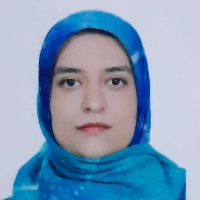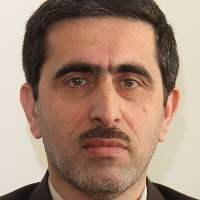Designing and Validating of Social Problem Solving Test Based on the Stories of Kalileh and Demneh
The ability to solve social problems is one of the skills and capabilities related to culture in today's world, where group cooperation and presence in a collective context are highly emphasized. The aim of this study was designing and validating a tool tomeasure social problem solving based on the stories of Kalileh and Demeneh.
The research method was a mixed exploratory type based on the integration of the Thematic analysismethod in the first stage (qualitative) and the tool development model in the second stage. In the qualitative section the Kalileh and Demaneh book were evalited. The quantitative part was conducted with the participation of 336 teenage students in the agerange of 12 to 20 years and targeted sampling. The data was collected using a researcher-made questionnaire consisting of 43 questions. Data was analyzed using MAXQUDA software, LISREL-8.8, exploratory and confirmatory factor analysis method and SPSS Statistics for Windows, version 19.0 (SPSS Inc., Chicago, Ill. Coding reliability was calculated using Kappa method equal to 0.95. The content validity of the scale was confirmed using experts' opinions.
The questionnaire for measuring social problemsolving skills based on the stories of Kalila and Demeneh included the components of emotions and their management, thinking and decision-making, interpersonal communication, consultation, the way of dealing with problems and the attitude towards problem solving. Criterion validity of this questionnaire was confirmed based on Pearson's correlation coefficient equal to 0.63, for solving the social problem of D’Zurilla at the level of 0.001. The reliability of the tool was obtained using Cronbach's alpha coefficient for the overall scale and the six dimensions identified as 0.92, 0.75, 0.72, 0.87, 0.72, 0.90 and 0.83 respectively.
The study showed that the social problem solving skill measurement scale based on the stories of Kalila and Demenehhas acceptable reliability and validity.
-
The comparison of effectiveness of training based on self-regulated strategy development model and cognitive strategies training based on Englert model on reading disorder of students with learning disorder
Saeede Fatahi *, Reza Ghorban Jahromi, Norali Farokhi, Ismail Sadipour
Journal of Educational Psychology Studies, -
The Mediating Role of Self-Acceptance and Goal Self-Concordance in the Relationship between Basic Psychological Needs and Psychological Well-Being
Atefeh Mazoosaz, Fatemeh Sadat Fatemi, , Zahra Salehi, Zahra Ghalami *
Journal of Applied Psychology, -
Comparing the Effectiveness of Attachment-Centered Theraplay and Child-Parent Relationship Play Therapies on Emotion Regulation in Children with Separation Anxiety Disorder
Mahsa Najmi, Reza Ghorban Jahromi*, Esmail Sadipour, Mansoureh Karimzadeh
Journal of Early Childhood Health and Education, -
The Role of Academic Self-Handicapping Behaviors in School Belongingness Among Students with the Mediating Role of Academic Hardiness and Academic Adjustment
Zahra Ghalami, Nazanin Mohammadi, *, Faeze Nafar
Journal of adolescent and youth psychological studies, Dec 2024 -
The Effectiveness of Mindfulness-Based Parenting Education Program on Quality of Parent-Child Relationships and Parenting Stress of Parents of Children Age Preschool in Tehran City
Minoo Sadat Hosseini Sohi, Fariborz Dortaj *,
Journal of School Psychology, -
تعیین وضعیت آسیب شناسی رفتار ناایمن کاربران ترافیکی و ارائه راهکارهای لازم در این خصوص
صغری ابراهیمی قوام*، سوزان جوادنژاد
نشریه مهندسی ترافیک، تابستان 1403 -
Effectiveness of Marital Enrichment Package Based on Islamic Teachings on Couples' Marital Satisfaction
Mojtaba Satkin, Seyyed Abolghasem Mehrinejad *, Nemat Sotodehasl, Hasan Asadzadeh
Biannual Peer Review Journal of Clinical Psychology & Personality, -
Comparing the Effectiveness of Educational Program Based on Response to Intervention and Sensory-motor Integration Intervention on the Cognitive Rhythm of Students with Learning Disabilities
Mohadeseh Kargar Motlagh, Faezeh Jahan*, Hasan Asad Zadeh
Journal of Exceptional Children,





